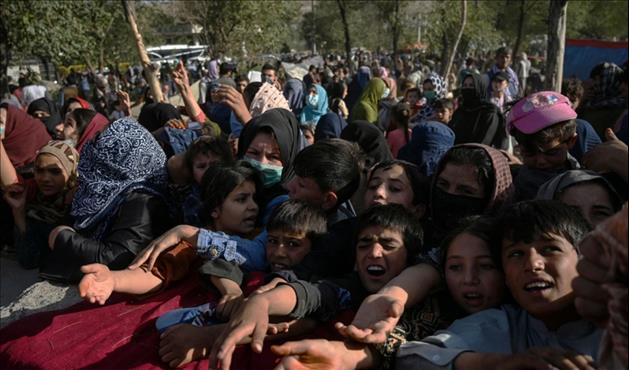
Aid Delivery To Afghans Was Ineffective Under The Taliban, A Report Suggests
Under the Taliban government, aid delivery to the Afghan people has been ineffective, with health and education initiatives in disarray.
According to the latest report by the Europe Asia Foundation (EAF) titled“Can 'Softly-Softly' Address the Afghan Crisis?” (April 2022), the world's aid is not distributed efficiently by the Taliban, and war-torn Afghanistan is facing a funding shortage after donor nations imposed sanctions after the Taliban took control of the country.
According to the research, foreign humanitarian help pledged in the amount of USD 1.88 billion since mid-2021 has not been distributed effectively, and more than half of Afghans are hungry. Similarly, a research group, Policy Research Group (POREG), reports that the World Food Programme (WFP) is having trouble finding donors to support its USD 4.4 billion goals.
This brings up the question: has the international community succeeded in using aid and assistance as a bargaining chip to get the Taliban to behave? Due to circumstances such as the closure of girls' schools and the ban on girls and women attending schools and universities, the response is a loud nay.
The Taliban postponed the reopening of girls' secondary schools indefinitely in March, citing a technical issue. Afghan women are no longer enrolled in school, and the World Bank has halted a USD 600 million investment in Afghan education!
Furthermore, the European Parliament has aided Afghan women in maintaining a high media image by presenting a series of relevant events featuring women who have previously held prominent positions in Afghan society. That, however, is beside the point. More so, given the evidence on the ground, no amount of Western pressure is likely to persuade the Taliban and its Pakistani supporters to agree to social or economic reforms that would benefit Afghans.
As a result, the international community has been hesitant to engage with Afghanistan. Only 13 countries have embassies in Kabul now, with the European Union (EU) being the only non-Asian organisation with a presence. According to POREG, simply being present in Afghanistan is insufficient to overcome the severity of the humanitarian disaster that is unfolding.
Notably, all foreign aid to Afghanistan has been halted, with the exception of assistance to international aid agencies and non-governmental organizations (NGOs) working directly with Afghans. The abrupt halt in aid triggered a major liquidity crisis, making it unable to fund imports of desperately needed food and medicines.

Legal Disclaimer:
MENAFN provides the
information “as is” without warranty of any kind. We do not accept
any responsibility or liability for the accuracy, content, images,
videos, licenses, completeness, legality, or reliability of the information
contained in this article. If you have any complaints or copyright
issues related to this article, kindly contact the provider above.


















Comments
No comment